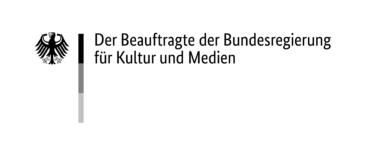
Starterkit
Here you will find all the important information that can help you start your music career. Click through the following categories and contact us directly at info@popofficebremen.de.
Starting a business as a musician, registration and taxes
If your musical activity is not just a hobby but intended to generate profit (even on a part-time basis), you must register it with the tax office.
This is done by completing the tax registration questionnaire, which officially establishes your self-employed status and leads to the assignment of a tax number. For basic information, you can refer to the free brochure “Everything but an Entrepreneur? – Tips for Founders and the Self-Employed in the Cultural and Creative Industries” published by the Federal Government’s Cultural and Creative Industries Initiative. Additionally, the Pro Musik association offers a detailed starter kit to help guide you through the process of becoming self-employed.
Self-employed individuals are generally classified as either freelancers or business operators. Most cultural and creative professionals — such as musicians — typically fall under the category of freelancers. Being a freelancer means you are not subject to trade tax (Gewerbesteuer) on your income. However, if your freelance income exceeds the basic tax-free allowance of €12,096 per year, income tax will be levied on the amount above that threshold.
You need to register a business if, for example, you sell physical music recordings or start a label. If your activities are classified as a business, you must file for a business registration (Gewerbeanmeldung). Trade tax only applies if your business income exceeds 24,500 Euro and most of this tax is credited against your income tax (§35 (1) sentence 1 of the German Income Tax Act). You can find more information here.
If a band consists of multiple self-employed individuals, they may choose to establish a legal entity. The most common form is a civil law partnership (Gesellschaft bürgerlichen Rechts, or GbR). You can find more information and a sample GbR agreement template here. In this case, the trade tax is owed by the partnership, but still credited toward each partner’s personal income tax.
That depends on several factors. Income tax applies to all profits from self-employed activities, regardless of the type of work. Important: If you have multiple sources of income (e.g., both self-employment and regular employment), all earnings are combined to determine your tax rate for self-employed income. As a self-employed person, you are required to submit an annual income tax return. To estimate your income tax, you can use the wage and income tax calculator provided by the Federal Ministry of Finance.
Additionally, you can find a presentation by tax consultant Mariya Staykova, given at one of our POPup MEETups, here. A brochure summarizing tax tips for artists is also available here.
This depends on whether you, as a self-employed person (or as a GbR), are liable for VAT or not. If your estimated total revenue from all self-employed activities is below €25,000 (or €22,000 until 2024), you can classify yourself as a “small business” and issue invoices without VAT. You can find more information on the small business regulation here. If you are liable for VAT, you must include VAT in your invoices, depending on the type of service or goods. The standard VAT rate is 19%, and the reduced rate is 7%. For musicians, the reduced rate typically applies to performance fees and copyright payments. If you are VAT-liable, the advantage is that you can reclaim VAT on business expenses paid from the tax office.
Funding and support
Apart from the POP Office, musicians residing in Bremen can apply for funding programs offered by the Senator for Culture. An overview of current calls for applications can be found on our events page. The Landesmusikrat Bremen also provides a comprehensive overview of available funding opportunities. In Bremerhaven, you can contact the Cultural Office for support.
At the federal level, there are several organizations that offer funding, such as Initiative Musik, Musikfonds, Bundesverband Popularmusik (BV Pop), and the Goethe Institute. Additionally, there are foundations that support bands and solo artists. The Wacken Foundation targets musicians from the hard rock and heavy metal scene, the Jütting Foundation provides scholarships to emerging German and Polish artists in popular music, and the Udo Lindenberg Foundation awards the Panik Prize worth €5,000 (for which your lyrics must be in German or predominantly in German).
There are various ways in which a performance fee can be paid. Donations “in the hat” typically go 100% to the performing artists. When the fee is based on a percentage of the ticket sales, musicians usually receive 50–70% of the revenue. If a venue is rented, the organizers are responsible not only for the rental cost but also for payments such as GEMA and KSA fees, possible VAT on ticket sales, and other expenses. In this case, it is common for musicians to be offered a guaranteed flat fee depending on their popularity and the venue’s capacity. Once the “break-even” point is reached, and ticket sales have covered all costs, musicians can receive a percentage of the profits. For publicly funded events, the fee often depends on the artist’s popularity.
General guidelines can be found in the Minimum Fee Recommendations by the Union of German Jazz Musicians. Additionally, the “Gagenkompass” by Pro Musik, which is based on data from various sources, including surveys and industry experts, can be helpful in determining appropriate fees.
Rehearsal rooms and studios
An overview of places to rehearse and perform in Bremen and Bremerhaven can be found in this online tool created by the Landesmusikrat Bremen.
Some providers of rehearsal spaces in Bremen include Musikszene Bremen and Güterbahnhof Bremen.
In Bremen Oberneuland, for example, there is Studio Nord, which was founded in the 1960s as one of the first private recording studios in Germany. There are also Harbor Inn Studios Bremen, Krumme Klänge, Herzblut Recordings and Sunsetter Studio. You can find more recording studios via the online tool of the State Music Council.
If you’re interested in topics like mastering, mixing, producing, or recording, our experts in the expert pool are happy to assist you.
The number of music labels in Bremen is relatively small. Some examples include Fuego Label or Weser Label, a few jazz labels, and labels founded by musicians themselves. These are for example Am Apparat, Erotic Toy Records, Fettherz or Latenz Label – The list goes on and on.
Interested in starting your own label? The VUT’s checklist for starting a label offers essential information.
Künstlersozialkasse (Artists' Social Insurance Fund) and Insurance
The Künstlersozialkasse (KSK) ensures that self-employed artists and journalists enjoy similar protection under the statutory social insurance system as employees. It is not a health insurance provider itself, but rather coordinates the payment of contributions for its members to a health insurance provider of their choice, as well as to the statutory pension and long-term care insurance.
For musicians who earn the majority of their income from self-employed artistic work, it is always worth “becoming a member” because the KSK subsidizes the contributions, meaning that members only have to pay half of the cost.
You can find more information on the KSK website.
The subsidy that members benefit from is funded 20% by the federal government and 30% through social contributions from companies that use art and journalism. This social contribution is called the Künstlersozialabgabe (KSA), and it is a percentage paid to the KSK based on all fees paid to self-employed artists and journalists in a calendar year (such as performance fees or fees for poster design). It doesn’t matter whether the self-employed person receiving the fee is insured through the KSK or not. As the scope of this regulation covers the entire territory of Germany, the KSA also applies if fees are paid to self-employed artists living abroad who are temporarily working in Germany. The KSA must also be paid if a “band leader” pays fees to musicians.
Questions? Our experts will be happy to help you via our expert pool.
In addition to property insurance such as liability insurance for rehearsal rooms or musical instrument insurance, personal insurance such as disability and accident insurance is also important for musicians.
GEMA and GVL
Both are so-called collecting societies.
GEMA (Society for Musical Performing and Mechanical Reproduction Rights) manages the rights of its members (composers, lyricists, and music publishers). It handles the copyrights transferred to it and makes them available to music users for a fee (compensation). You can find a 2-minute explanation video here.
GVL (Society for the Exploitation of Neighboring Rights) is responsible for the so-called “secondary exploitation.” It collects fees for performers and executing artists when a piece of music is played on platforms such as television or radio. GVL also provides an explanation video.
So, if you’ve both written a song and performed it, you are entitled to payments from both collecting societies.
Got more questions? It’s a good idea to get affordable advice from our experts!
On the GEMA website, you can find a calculator to help you decide if membership is worth it. You can find it here.
The amount of income you earn from GEMA depends on individual usage and can vary significantly. Factors like how many rights holders are involved in the work play a role. In Pro Musik’s Starterkit, you’ll find example calculations.
If you are a member of GEMA or GVL, it is important not to neglect your membership. There are several key points you should keep in mind to avoid missing out on potential earnings. First, it is essential to regularly update the database. For GEMA, it is advisable to perform a data check twice a year to uncover any revenue gaps. Correctly registering your songs is crucial, so make sure you know exactly what to look out for when submitting reports. Additionally, always review your statements and claim any missing income. Finally, make sure you are aware of all deadlines to ensure you don’t miss important opportunities.
Mental health
We recommend a consultation with our experts from MiM – Mental Health in Music. MiM was founded in early 2020 by psychologists and musicians Anne Löhr, Franziska Lauter, and Michael Wecker to contribute to the visibility, accessibility, and awareness of mental health issues within the music industry.
The association’s consulting pool, which now includes five psychologists and psychological psychotherapists, offers low-threshold psychological counseling and coaching specifically for music creators and professionals in the industry. You can find more information about our services in the expert pool here.


